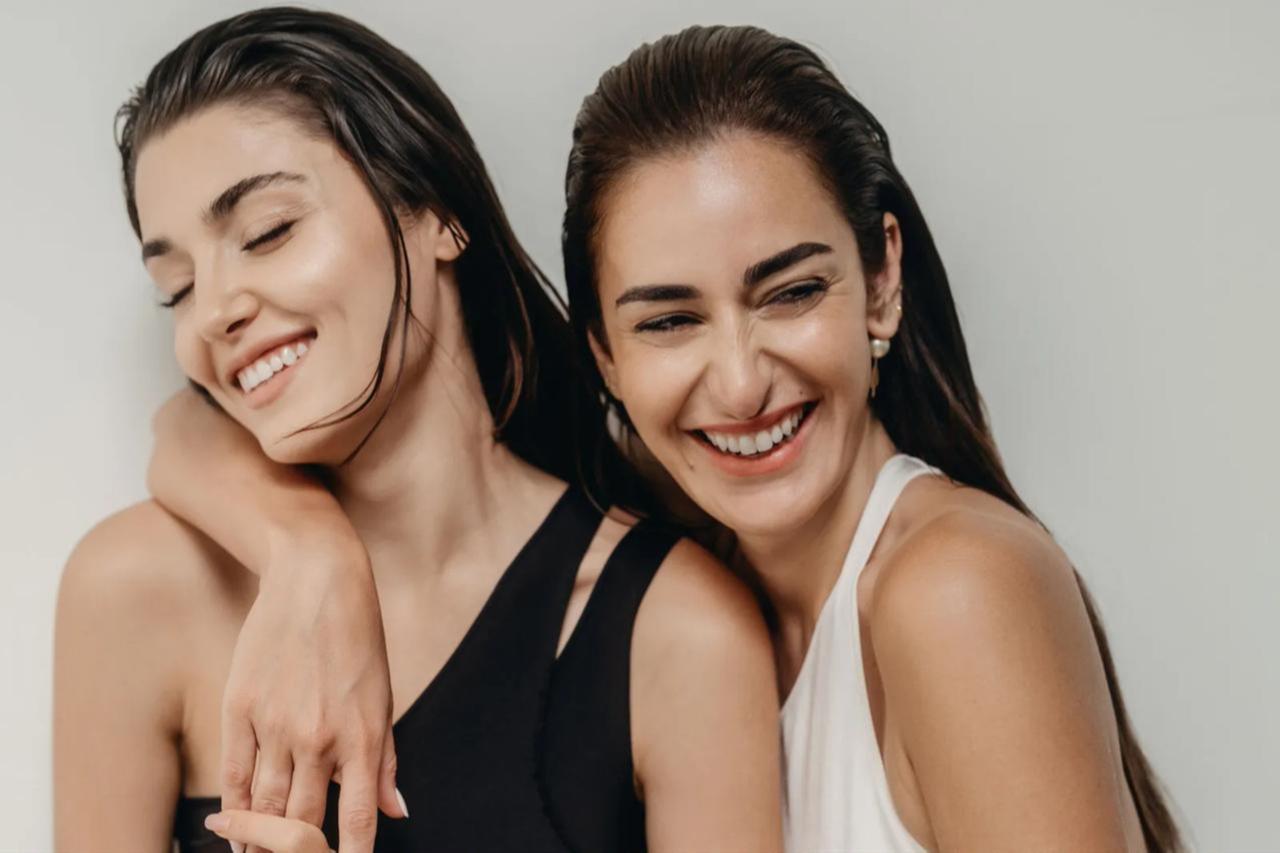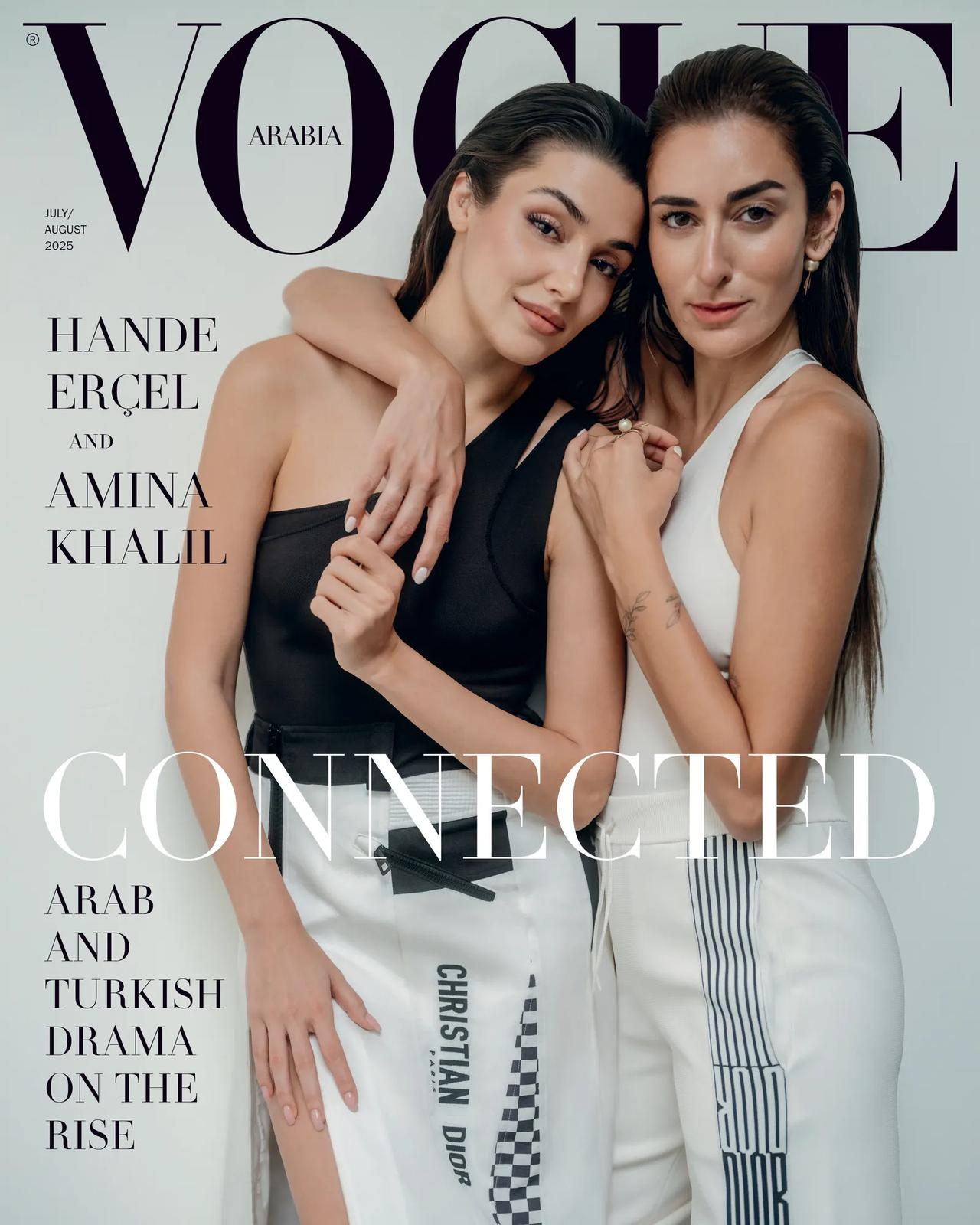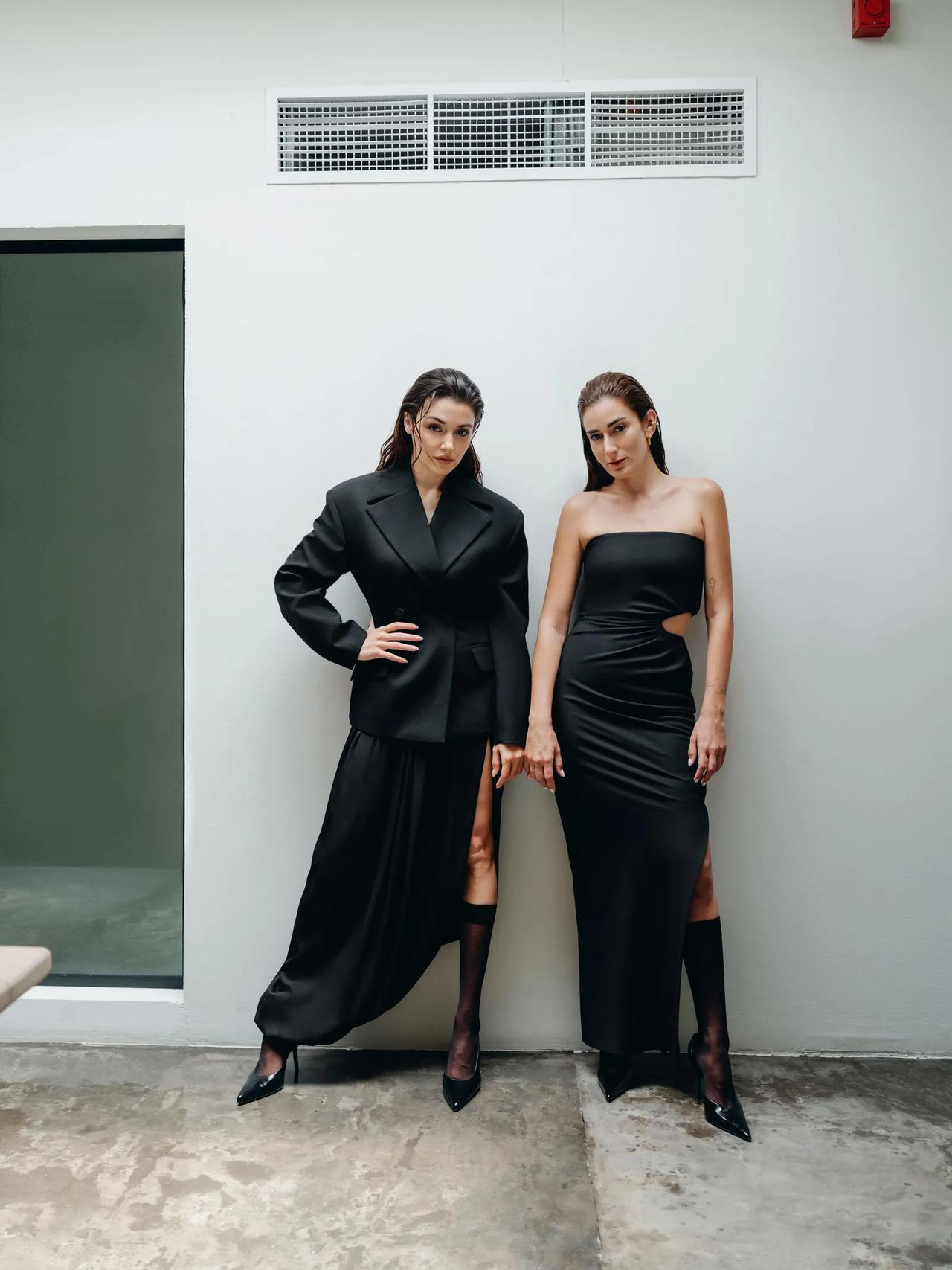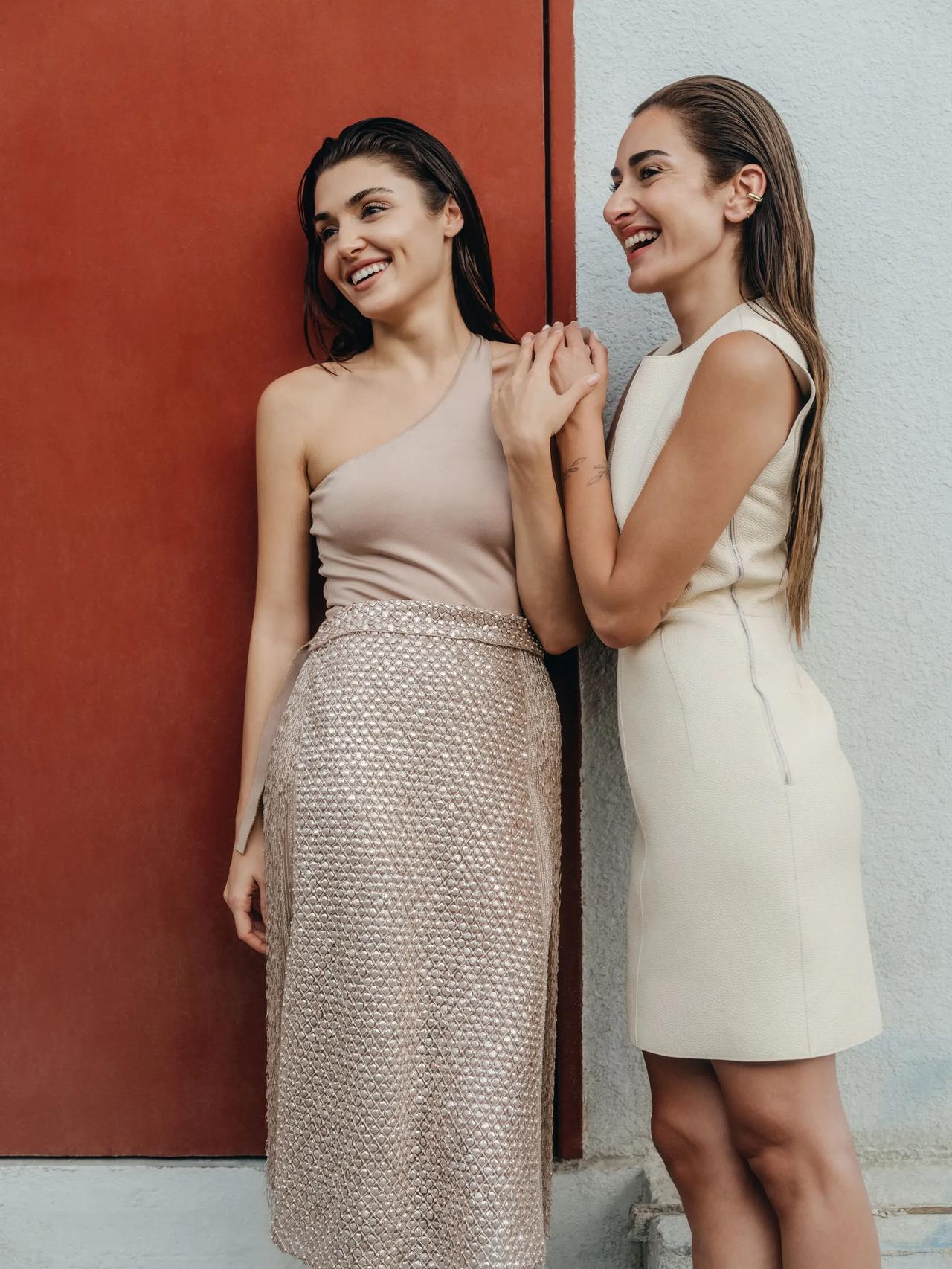
Vogue Arabia, in its new issue, brings together two of their brightest stars—Hande Ercel and Amina Khalil—for a powerful conversation on cross-cultural admiration and creative alignment.
Since 2008, when the first Turkish series was dubbed into Arabic, the region has witnessed the proximity between the two cultures, anchored by passionate stories and strong values.
And as the Turkish and Arab entertainment industries continue to grow increasingly interconnected, artists from both regions are finding common ground in shared narratives, collaborative projects, and mutual cultural appreciation—a trend
Ercel and Khalil exemplify the evolving relationship between their countries’ film and television scenes, celebrating a spirit of mutual respect and artistic synergy.
The actresses in the interview open up about mutual admiration, creative synergy, and what it truly means to be a woman in film today.
They also speak about what it truly means to be a woman in film today—navigating stereotypes, demanding more inclusive storytelling, and embracing roles that reflect the strength and complexity of real women. Together, they embody a new era of regional collaboration, where borders blur and shared stories rise to the forefront.

Hande Ercel and Amina Khalil agree on how Turkish dramas have captivated Arab audiences, not simply as television shows, but as cultural milestones for over two decades.
This deep connection has fostered a unique relationship between Arab and Turkish artists, culminating in powerful collaborations and shared values.
Hande explained why Turkish cinema continues to captivate Arab audiences. She pointed to the deep cultural and emotional similarities between the two regions, noting that shared values and experiences often lead to storytelling that feels instantly familiar and resonant.
This closeness, she explained, allows Turkish series and films to strike a powerful chord with viewers across the Arab world.

Reminiscing about her early days on screen, Ercel said, “Even from my earliest days on screen, I immediately noticed the immense warmth and enthusiasm from Arab audiences."
Ercel shared about the overwhelming support she has received from the region, calling it “genuinely inspiring.”
From wearing couture by Elie Saab and Zuhair Murad to attending major cultural events across the region, Ercel credits Arab creatives with expanding her worldview, both professionally and personally.
Her growing presence in the Arab entertainment scene reflects a meaningful exchange between the Turkish and Arab artistic worlds.
This isn’t Hande Ercel’s first appearance in Arab media. Anas Bukhash, the pioneering Emirati interviewer, conducted an in-depth conversation with Hande Ercel. While the interview has yet to be released, it is scheduled to premiere on Thursday at 9:00 p.m. .
From the Egyptian side of this cultural dialogue, actress Khalil shared her deep appreciation for Turkish film and television production.
She praised the nuanced depiction of women in Turkish series, especially characters like Gumus (known as Noor in Arab adaptations), whose emotional depth often surpasses that of their male counterparts.

“What leaves a lasting impression isn’t just the beauty of the Turkish heroine—it’s that female characters are often portrayed with more strength compared to Arab productions," Khalil maintained.
Khalil pointed out that these portrayals resonate strongly with Arab audiences, offering a model of nuanced, empowered femininity that many viewers find refreshing.
Ercel dreams of collaborating with the leading figures of Arab cinema—prominent and influential names like Nadine Labaki and Hiam Abbas.
She envisions a future where stories are told by and for the people of the region, and she is fully ready to be part of that future.
Beyond her admiration for female Arab directors and actresses, Hande is also a devoted fan of Arab literature.
She sees strong parallels between Arab and Turkish storytelling traditions. Citing writers like Nawal El Saadawi and Ghada Al-Samman as sources of inspiration, she expressed a deep respect for Arab narratives—and a genuine interest in joining regional productions that center on women’s voices and lived experiences.
As interest grows among Arab talents to participate in Turkish productions, Ercel offers heartfelt guidance.
“Bring sincerity, bring passion,” she recommended.
She believes that success is not only possible but natural for Arab artists who approach Turkish storytelling with authenticity, especially actors like Khalil, whose understanding of character and emotion aligns seamlessly with the tone of Turkish dramas.